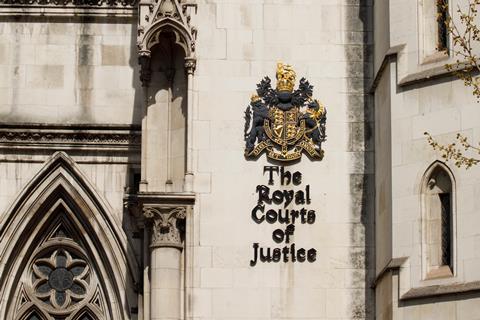The Court of Appeal has dismissed an appeal from an ex-solicitor jailed for a year for breaching the terms of a civil restraint order.
Edward William Ellis was found to be in contempt in March after breaching the order preventing him issuing claims on behalf of others. Mr Justice Kerr found Ellis, who was struck off in 2013, had been behind two new applications which had the hallmarks of claims brought by him in the past.
Ellis challenged the court ruling, but his appeal notice was, according to Lord Justice Coulson in Edward Ellis v His Majesty’s Solicitor General, ‘incomprehensible’. He provided three separate bundles comprising hundreds of pages, none of which referenced the two applications in question or the Kerr ruling.
Instead, Ellis objected to the whole process and said he was granted protection from contempt through his involvement in a secret organisation which judges were not allowed to know about. He claimed to have authority from the cabinet to act the way he did and said that Kerr was part of a widespread judicial fraud to protect both organised crime and the medical profession.

Ellis had been said to have given litigants false hopes and expectations, but he called these his ‘citizens claims’ and suggested that their refusal demonstrated the 'judicial corruption' he was trying to uncover.
‘It hardly needs to be said that this was all undocumented and dangerous fantasy,’ said Coulson. ‘There was no evidence that supported any part of it. There was no evidence of the various authorities or investigations to which we were referred; no evidence of the Royal Commission; no evidence of any element of the secret role that the appellant was fulfilling. It was, in my view, abject nonsense from start to finish.’
The judge said it was beyond reasonable doubt that Ellis made or procured the two new applications and was in breach of the restraint order. As an ex-solicitor who had been subject to the order for five years, he was fully aware of its terms and knew precisely what was not allowed.
Coulson said the test for criminal contempt was ‘plainly met’, both through the waste of time and effort required to deal with Ellis and the effect on other litigants unwittingly recruited to his crusade whose cases were delayed and adversely affected.
The judge added: ‘He knows what he is doing. He is persistent. His determination to disrupt the justice system, and to interfere in cases in which he has no personal involvement whatsoever, appears limitless. I find myself wondering what such persistence and determination might have achieved had they been directed towards a sensible or cogent end.’


























